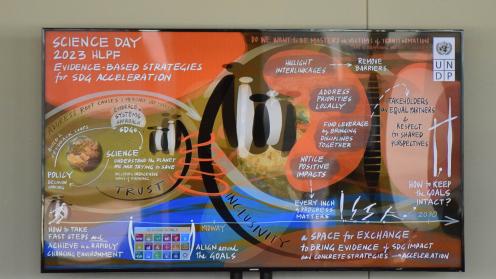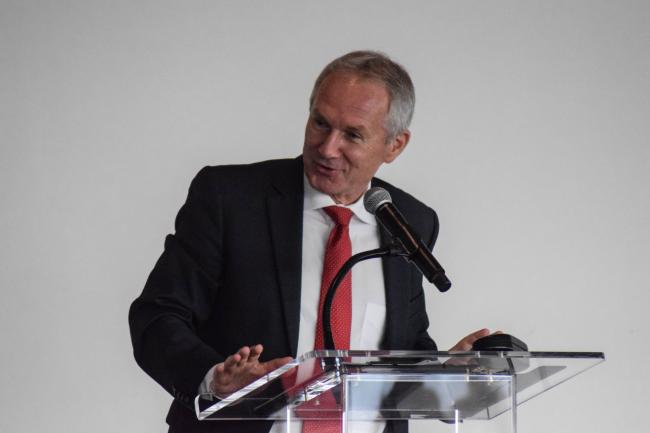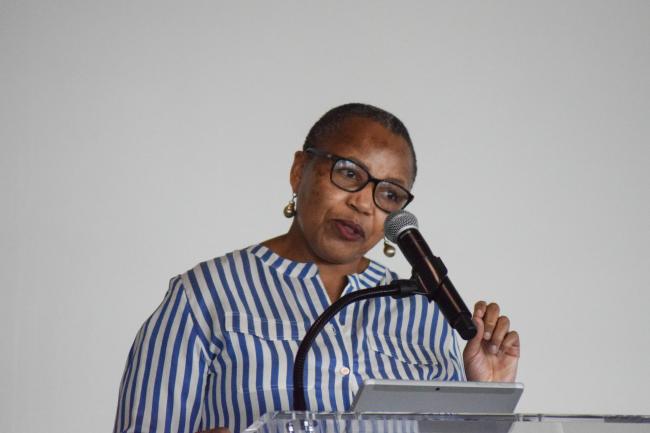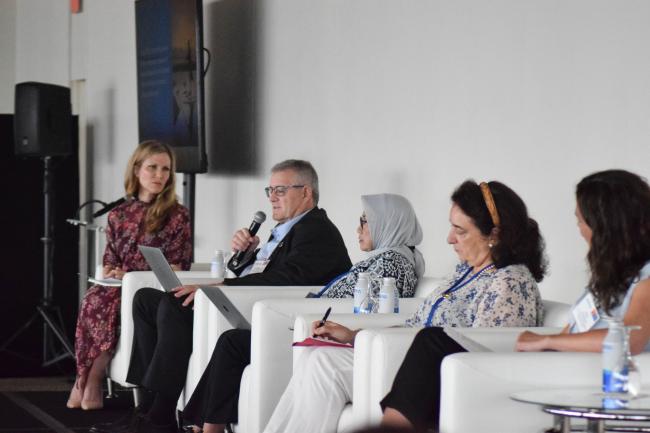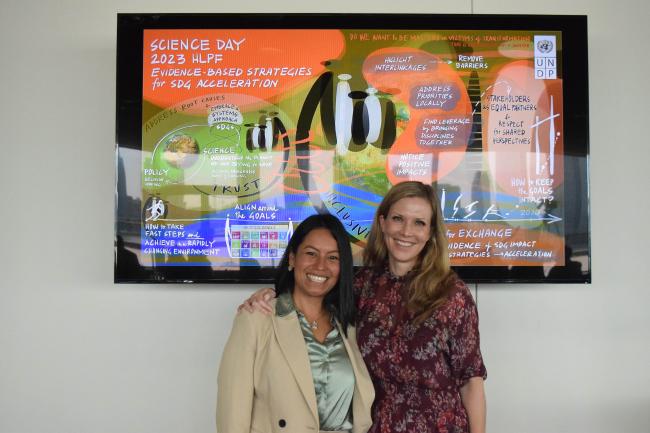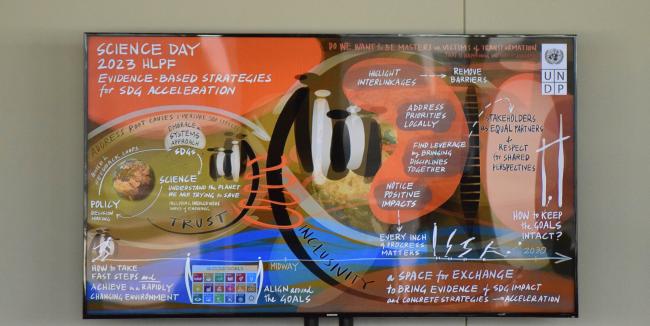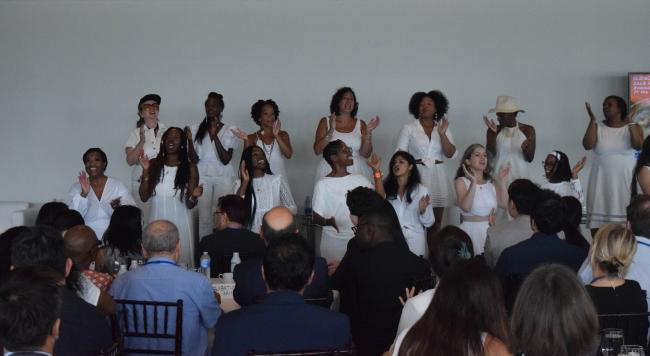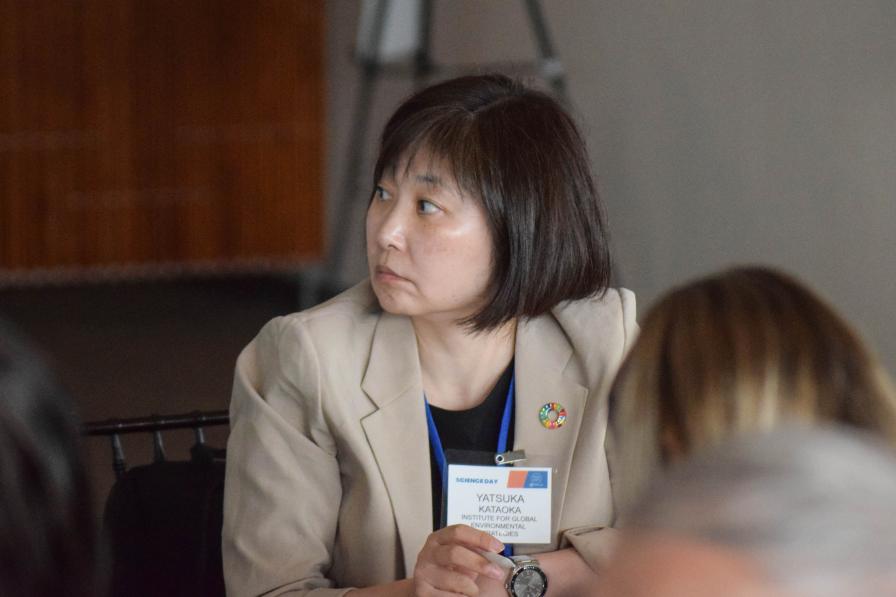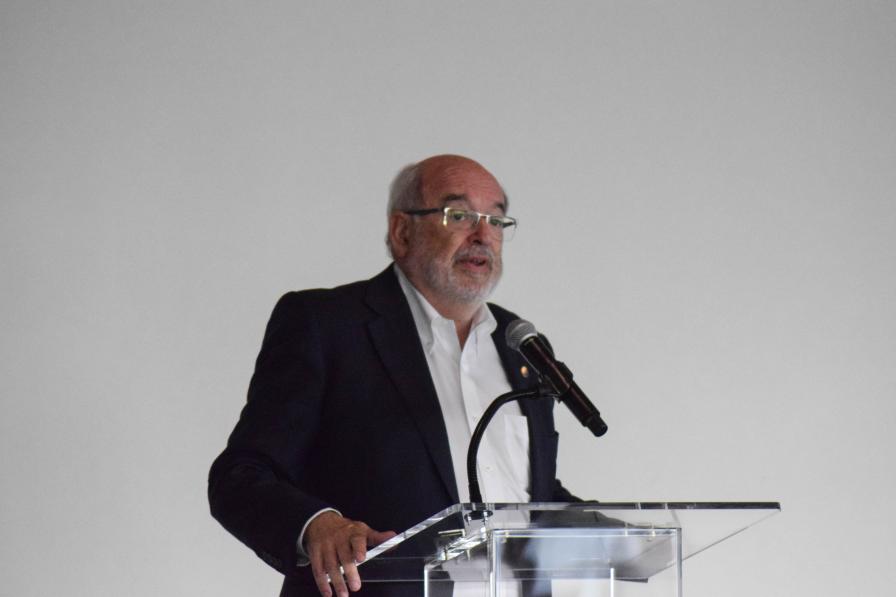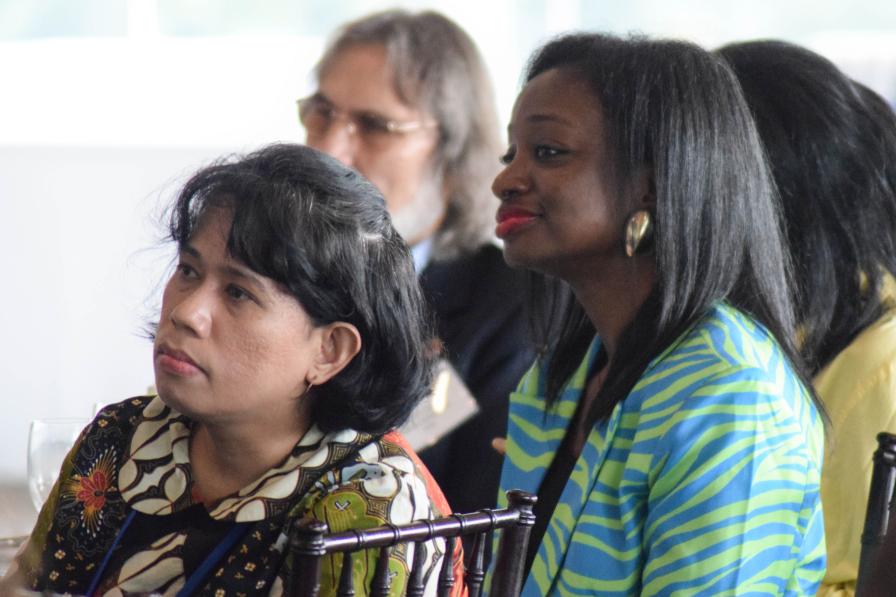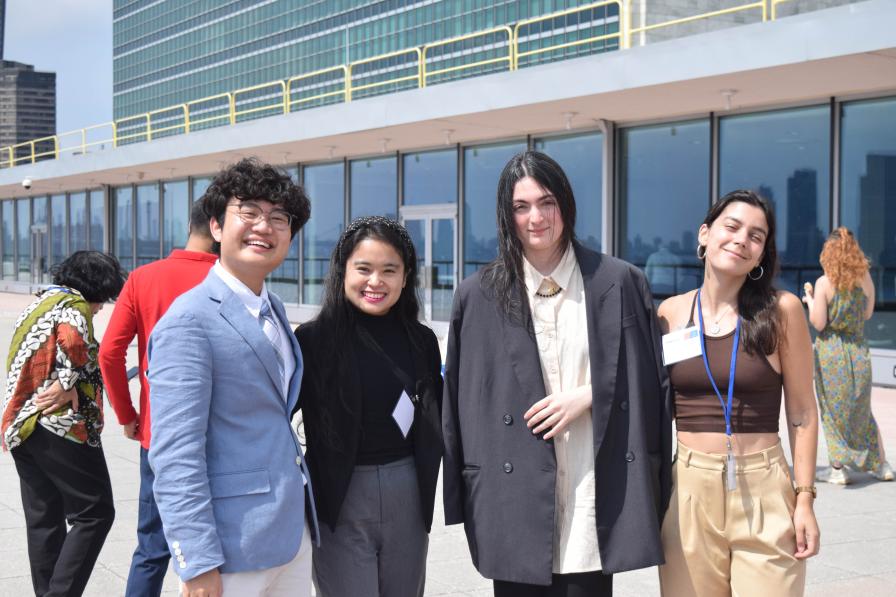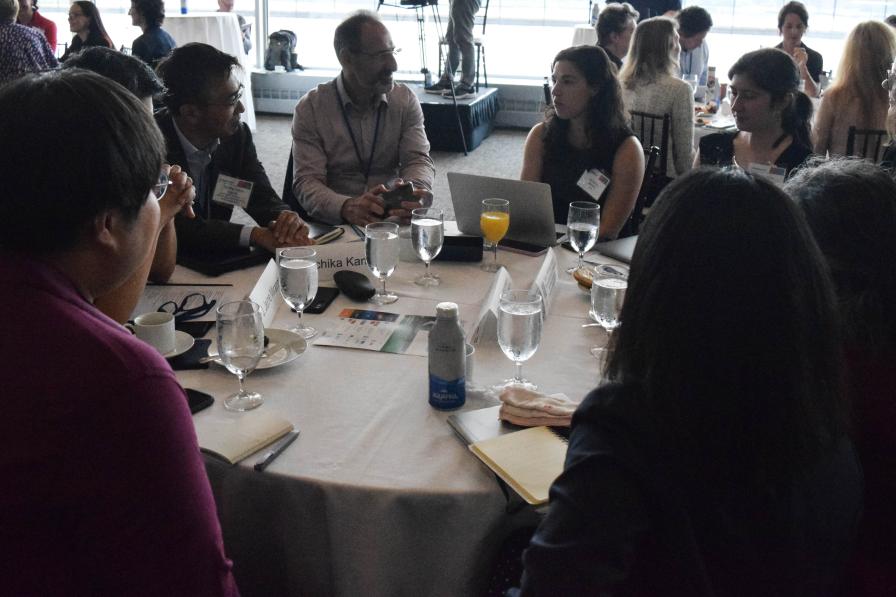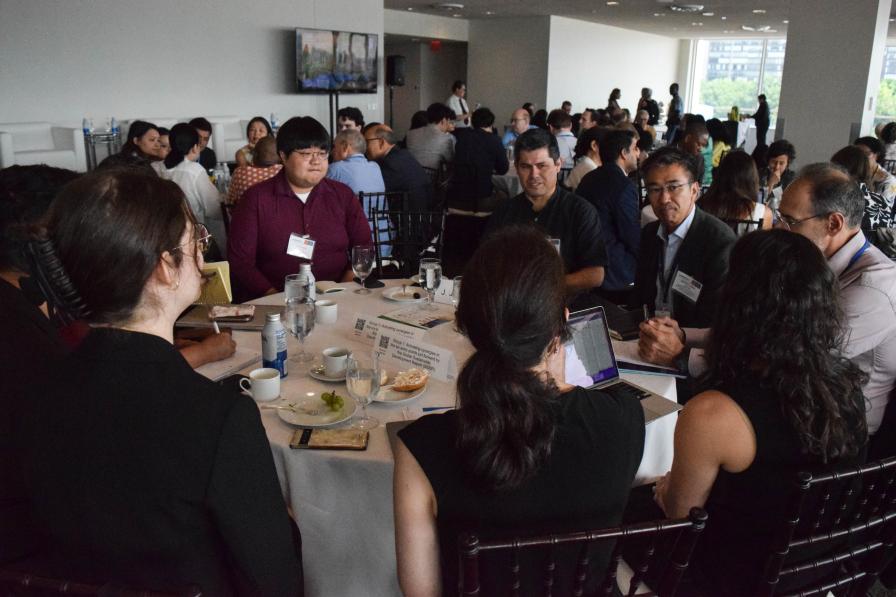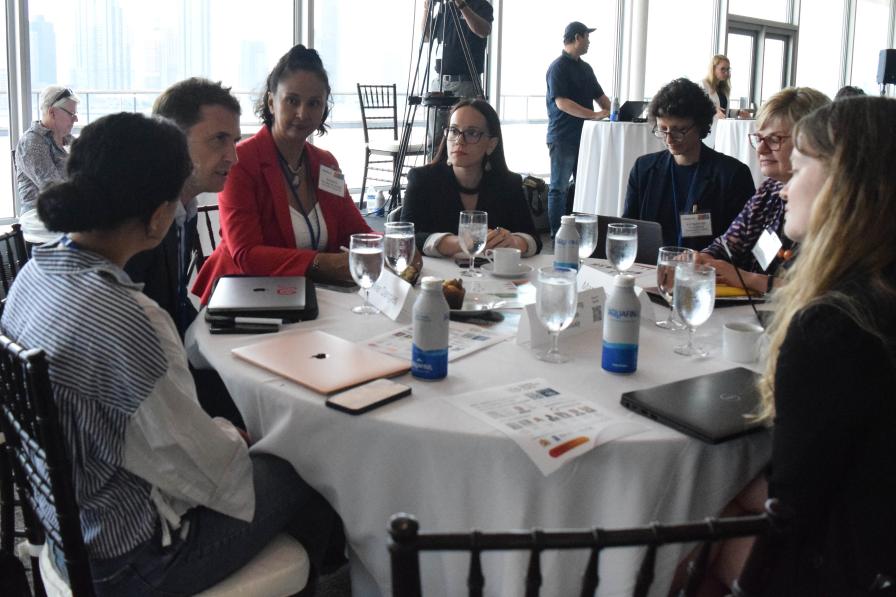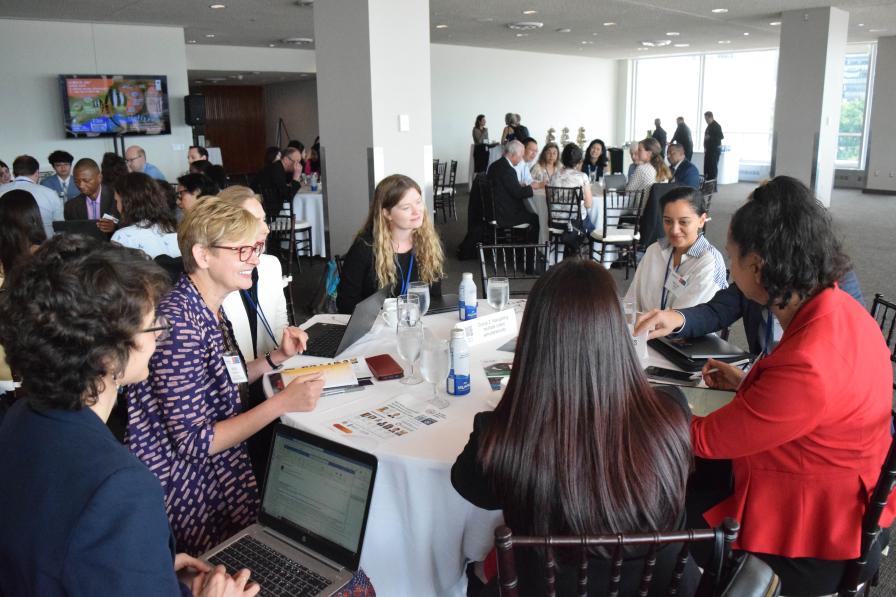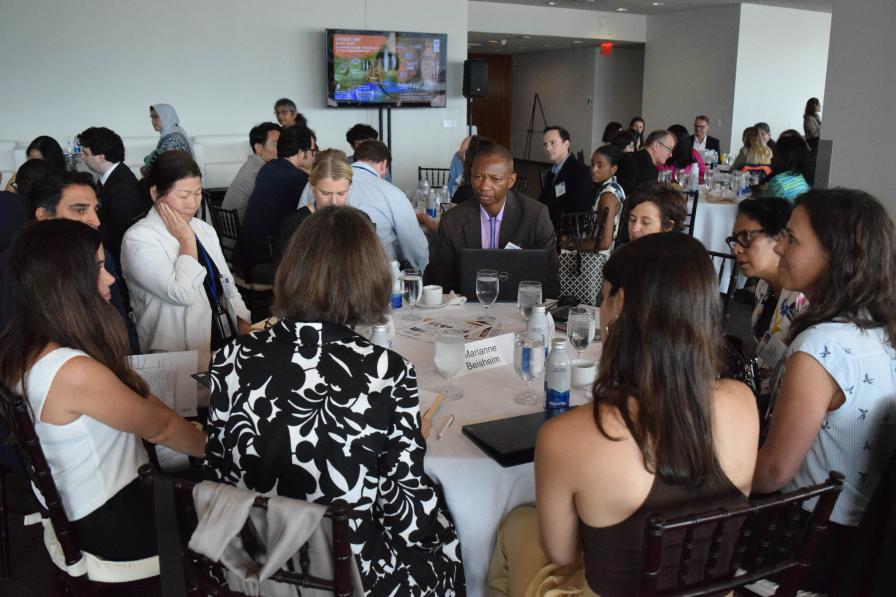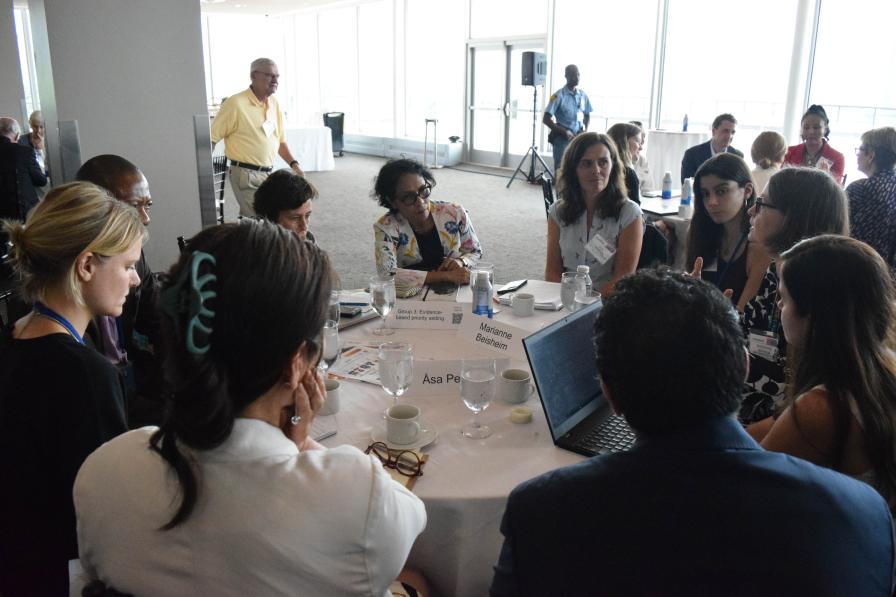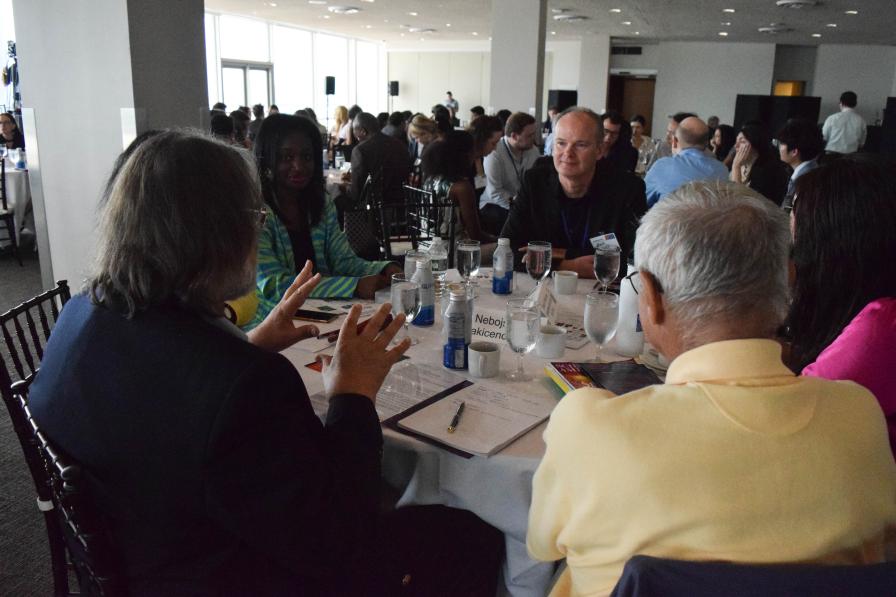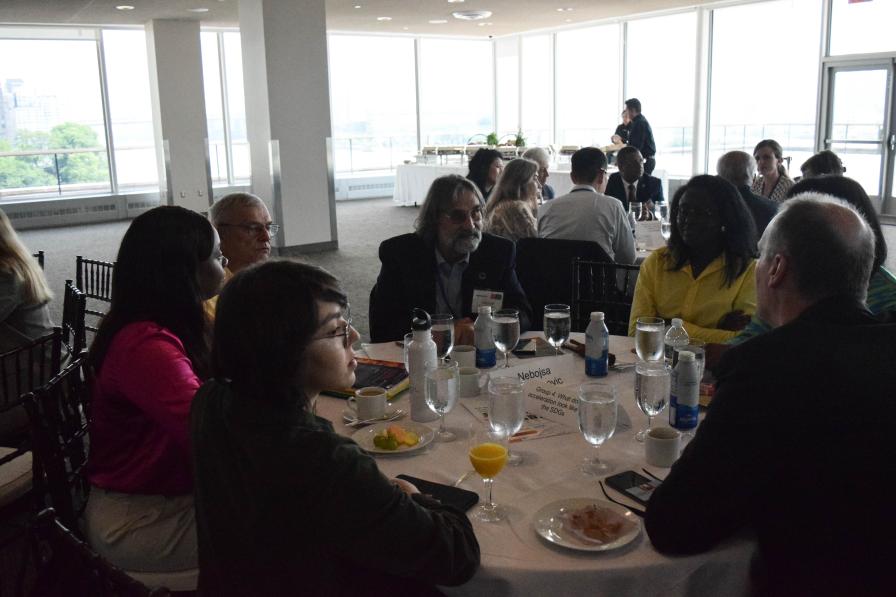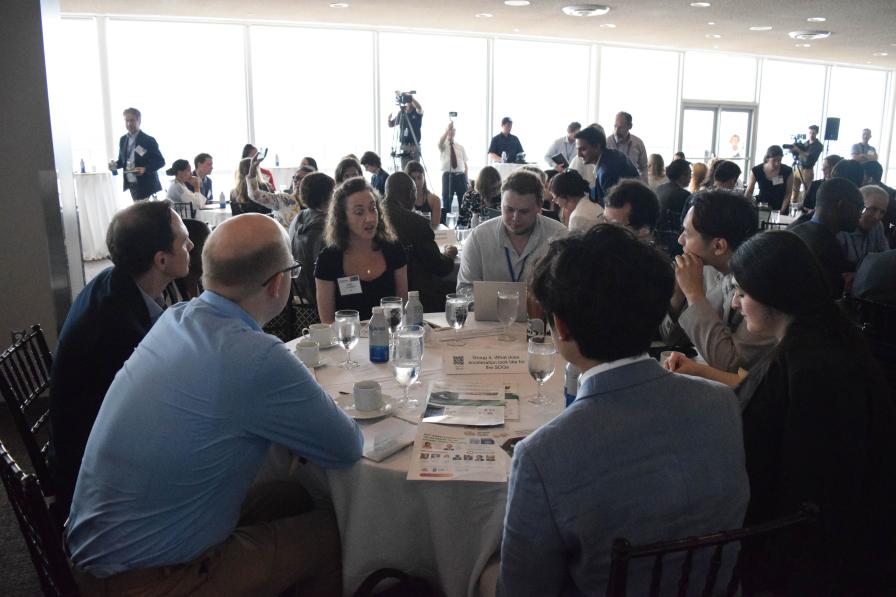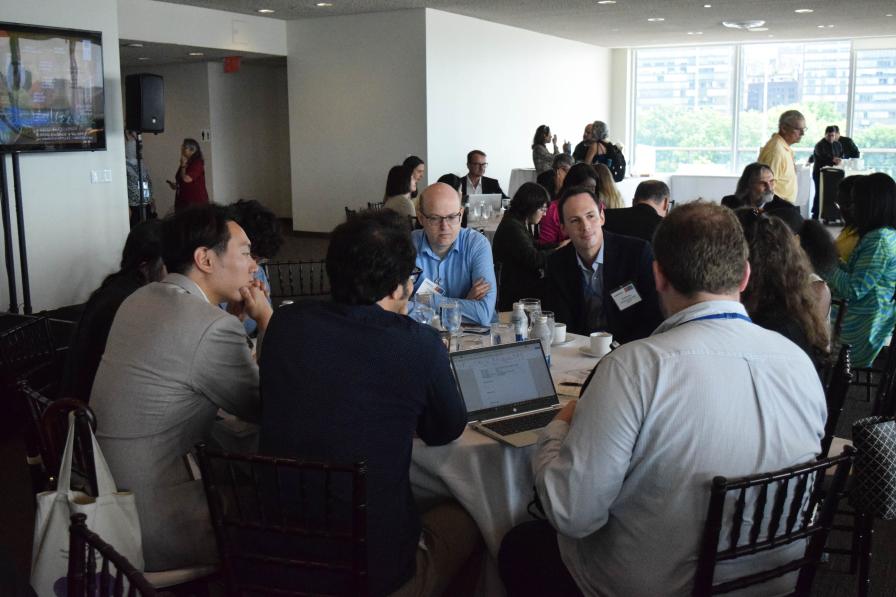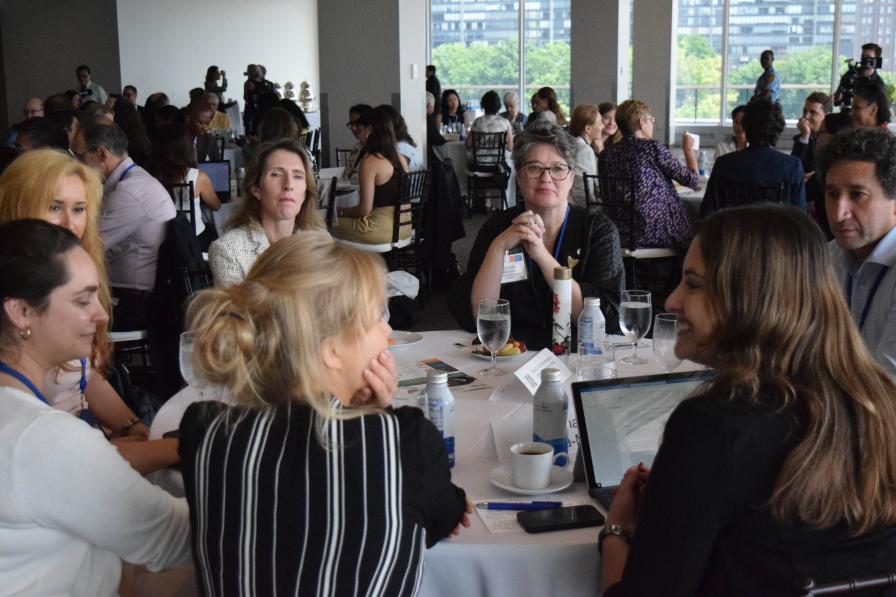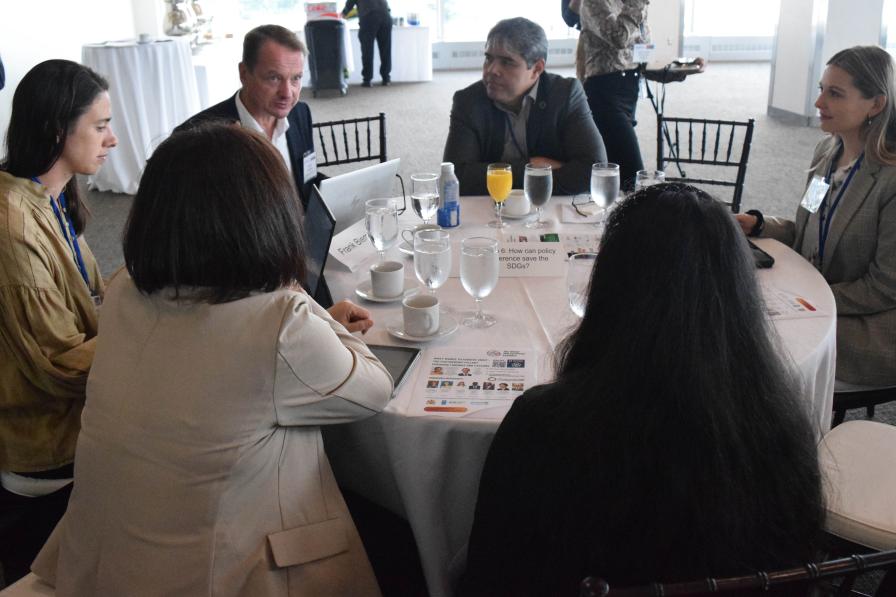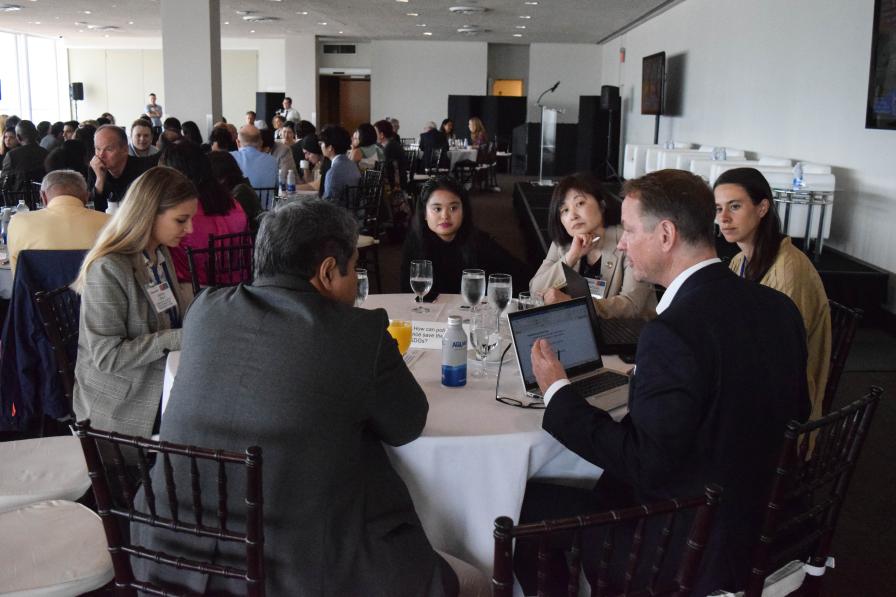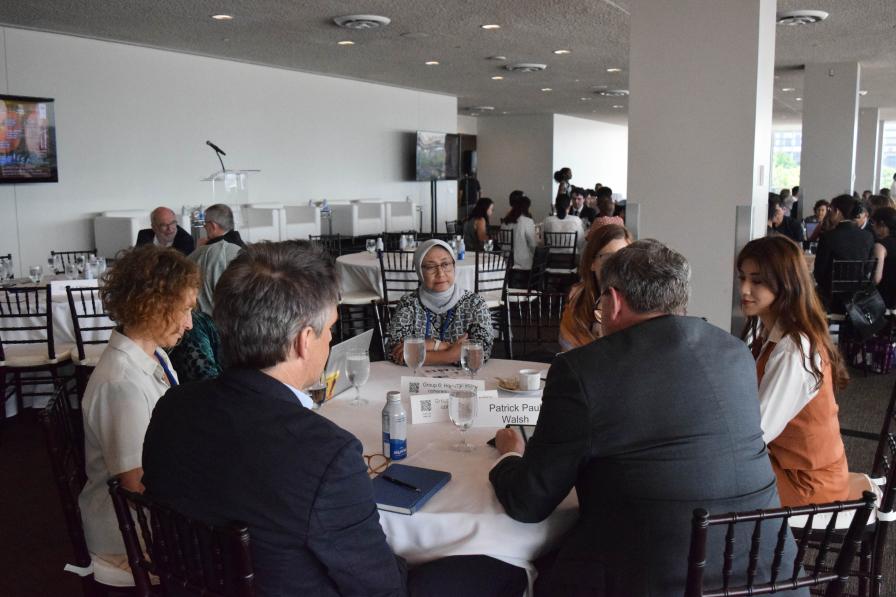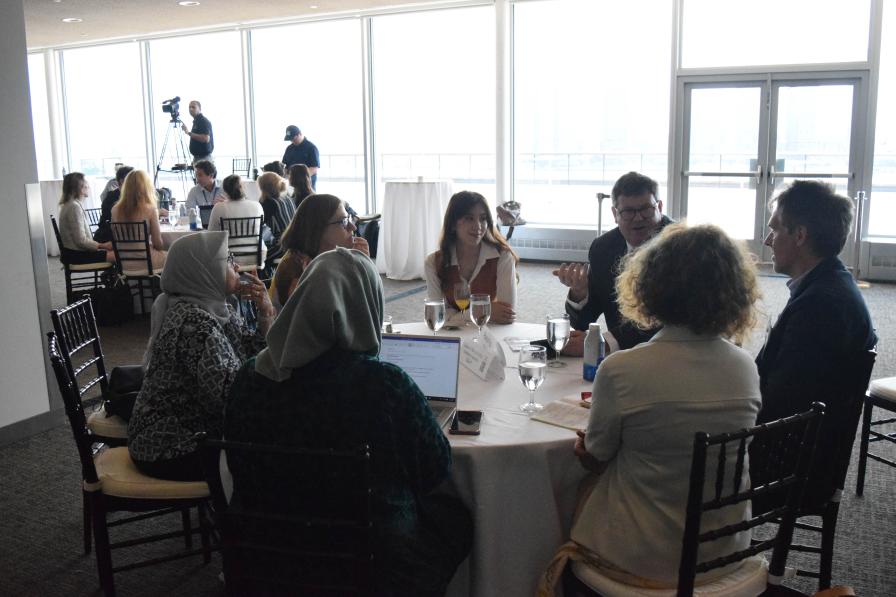About
More than 100 scientists, academics, civil society representatives, and policymakers discussed findings, methodologies, and tools that can help support evidence-based decision making for the SDGs.
Final report
Summary report 15 July 2023
All coverage
The first-ever Science Day to convene on the margins of the annual session of the High-level Political Forum on Sustainable Development (HLPF) discussed strategies to ensure acceleration of Sustainable Development Goal (SDG) implementation is as evidence-based, strategic, and effective as possible.
The event brought together approximately 150 scientists and academics, civil society representatives, and national government and intergovernmental decision makers on 15 July 2023, at UN Headquarters in New York, US, to discuss scientific findings, methodologies, and tools that can help support evidence-based decision making for the SDGs.
In his opening remarks, Csaba Kőrösi, President, UN General Assembly (UNGA), stressed the need to create national transformation strategies that are based on the SDGs. In this regard, he highlighted the need to:
- align national regulations with announced goals;
- calculate all important externalities;
- evaluate the impact of our investments across all pillars of sustainability through a “beyond GDP” approach;
- identify and prioritize game-changing elements in SDG implementation;
- build transparent road maps for implementation;
- improve science-based validation of implementation activities; and
- modernize the pipeline from science to policy and back.
He highlighted the creation of a Group of Friends on Science for Action by Belgium, India, and South Africa, stating it has provided momentum to the role of science in shaping decisions.
Ambassador Mathu Joyini, Permanent Representative of South Africa to the UN, and Co-Chair of the 2023 Multi-Stakeholder Forum on Science, Technology and Innovation for the SDGs (STI Forum), highlighted the importance of using pluralist approaches, emphasizing the importance for both the natural and social sciences to implement all of the SDGs. She stressed the need for collaboration and creating meaningful partnerships that reduce the North-South divide.
Peter Gluckman, President, International Science Council, stressed the need for knowledge brokers who can work at the edge of policy and scientific communities, and for a “big science approach” to produce actionable knowledge.
An opening panel set the stage for questions that were subsequently discussed in small groups. Among the issues raised were the importance of mission-driven science, the need to connect with the local level and people’s lived experiences, and the importance of inclusive perspectives for science. The need to build bridges between the scientific and policy communities was discussed, with remembering to ask questions and interrogating how questions have been defined as one suggestion for achieving this.
Based on these scene-setting interventions, participants gathered in small groups to discuss six topics, led by the following experts:
- Activating synergies in the six entry points put forward by the 2023 Global Sustainable Development Report (GSDR), led by Jaime Miranda, Chair, Independent Group of Scientists (IGS) for the 2023 GSDR, and Norichika Kanie, IGS Member;
- Navigating multiple crises simultaneously, led by Maria Ivanova, Director, School of Public Policy and Urban Affairs, Northeastern University, and Olivier Dangles, Deputy Chief Science Officer in charge of Sustainability Science, French National Research Institute for Sustainable Development;
- Evidence-based priority setting, led by Marianne Beisheim, Senior Associate, German Institute for International and Security Affairs, , Åsa Persson, Deputy Director SEI, and Babatunde Abidoye, Global Advisor SDG Integration, UNDP;
- What does acceleration look like for the SDGs?, led by Nebojsa Nakicenovic, Emeritus Research Scholar, International Institute for Applied Systems Analysis (IIASA), and Andrea Coombes, Senior Researcher, American Institutes for Research;
- Concrete examples to improve underlying critical conditions for SDG implementation (e.g., conflict, digitalization, equality), led by Paulina Carmona-Mora, Research Scientist, University of California-Davis, and member of the Global Young Academy, and Kazuhiko Takeuchi, President, Institute for Global Environmental Strategies (IGES); and
- How can policy coherence save the SDGs?, led by Frank Biermann, Director, ERC Global Goals Project, and Patrick Paul Walsh, Professor of International Development Studies in University College Dublin, Ireland.
In presenting her visual depiction of the Science Day discussion, Kelvy Bird, Founder, Presencing Institute, highlighted the discussion of systems approaches and feed-back loops and the calls for uniting, bridging, and breaking down barriers. She noted the barriers discussed during the day are manmade and said she tried to depict the interdependence that is required for solutions and SDG implementation.
Based on the discussions, a call to action for HLPF 2023 and the September SDG Summit will be developed. The insights also aimed to inform the 2024 Summit of the Future. Science Day at HLPF 2023 closed at 1:04 pm, following a performance by the Resistance Revival Chorus.
To receive free coverage of global environmental events delivered to your inbox, subscribe to the ENB Update newsletter.
All ENB photos are free to use with attribution. For Science Day, please use: Photo by IISD/ENB | Stephan Boissonneault
